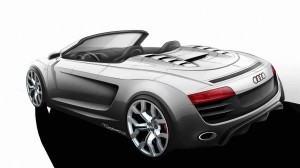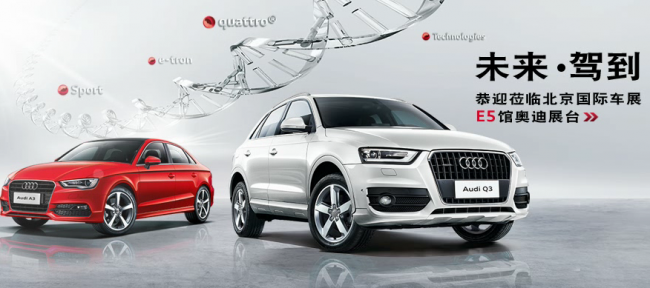Volkswagen is one of the biggest foreign companies operating in the four BRIC nations in general, and China in particular. China is already the world’s biggest automobile market, and it’s expected to grow faster than other BRIC nations between 2013 and 2015. Its luxury car market, which is expected to expand by 140% between 2012 and 2016, is on track to become the biggest in the world by 2016. Several luxury car manufacturers have set up production facilities to be closer to the growing pool of brand-conscious Chinese buyers.
Audi China lead the luxury car market
Audi China is no exception. In 2013, Audi begins is now gearing up to open its second assembly plant and producing its A3 sedan in FAW-VW’s Foshan facility. This establishment finally increases its carmaker’s capacity there to 700,000 units per year.
Interestingly, when it comes to luxury cars, the slowdown in the Chinese economy is having an adverse impact on sales of some of the premium luxury cars, such as Ferrari and Lamborghini. On the other hand, the affordable luxury car makers (A8 L, A6 L & Q5), such as Volkswagen, have been witnessing a great sales increase. The luxury car market is usually dominated by European manufacturers in China where Volkswagen’s Audi leads in terms of sales. In 2013, Audi China sold 491,989 cars in 2013 which saw a 20.67% than 2012, nearly doubling Mercedes Benz’s sales.
Long term strategy made Audi the first brand in China
Different from the rankings in other countries, Audi takes over the first place in China. The most influential reason is its long-term cooperation with FAW. This relationship has built Audi China a mature, stable partnership with its suppliers of car components. These suppliers master the most advanced technology of production in China and they share the same vision of quality with Audi. Mutual support, trust and seriousness create continuous power for quality enhancement. Moreover, the deep relationship has made Audi in China a vehicle for bureaucrats and government servants for quite a long time. The special relationship has brought strong sales as well as good branding for years.
On most recent auto exhibition on 20th April in Beijing, Audi China launched its new-energy solution – A3 Sportback e-tron with a series of 20+ types. Audi is charging into China`s green car market. Audi China has been making efforts on solutions for the minimization, of a sporty, environment-friendly high-grade car. Audi`s prospective is another reason for its leadership in China which attracts a lot of consumers and keeps consistent with the environment-friendly vision held by the government.
Branding strategy of Audi China

Audi`s Branding strategy in China is also highly effective. For example, Audi’s sponsorship of top music, art, culture and sporting events is not a form of corporate philanthropy but rather serve strategic PR purposes. Audi China provides its customers and media persons with a wealth of opportunities to experience premium music and sporting events and premium lifestyle. By associating Audi with world-level events, the awareness and retention of Audi as a luxury car brand can be greatly enhanced among consumers and media professionals. Gradually, the brand of Audi becomes commensurate with luxury lifestyle and premium art in the minds of consumers. Meanwhile, Audi`s CSR practice is also representative of its PR strategy. For instance, in 2005, Audi joined United Nations Children` Fund in lauching a major CSR program “Driving Dream”. This project also helped promote Chinese public’s acceptance of Audi as a well-established corporate citizen.
Audi China has outlined a long-term vision for the mainland’s green car market as well as its improvement of its luxury products. As the most fuel efficient premium brand in China. Audi, with its locally built model in China (efficient start-stop technology & brake energy recovery), will step into new era with China`s rising economy,
Amy Wang, market research company China
See also : The NY Times / Forbes





